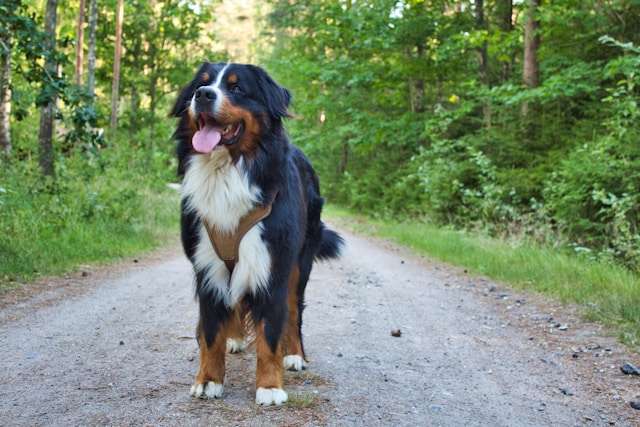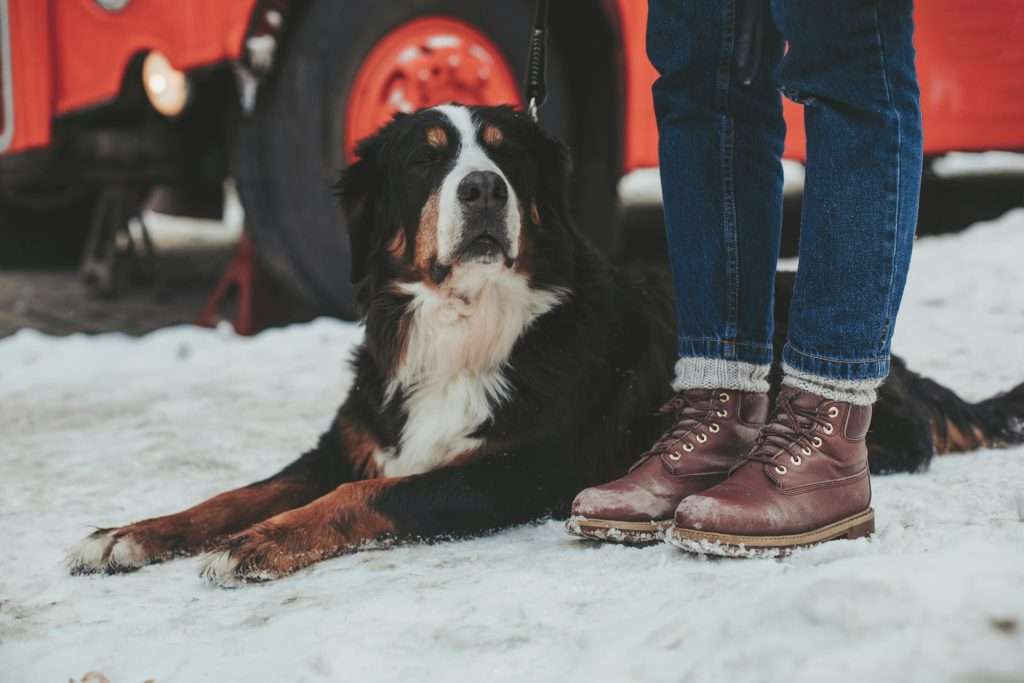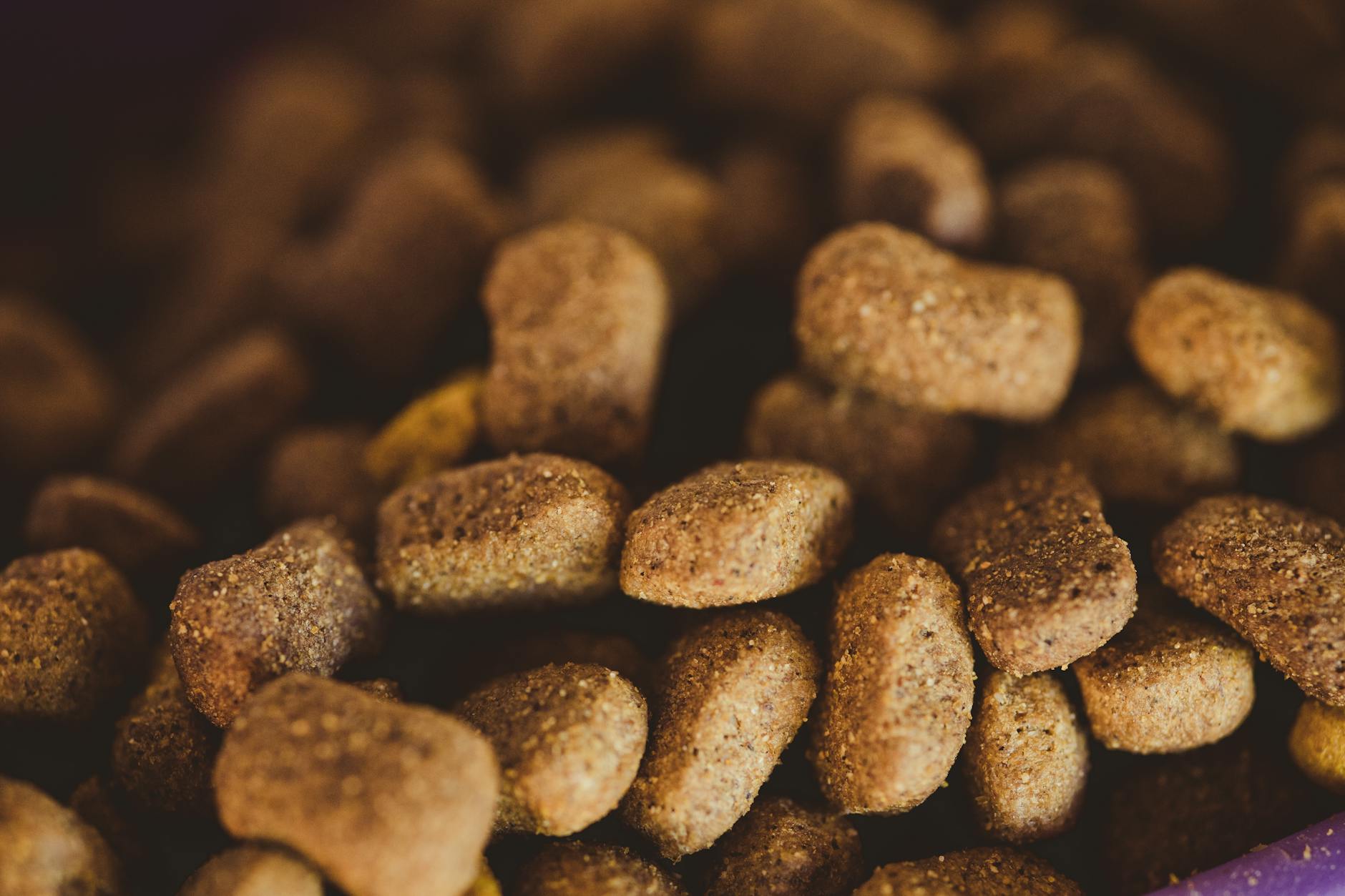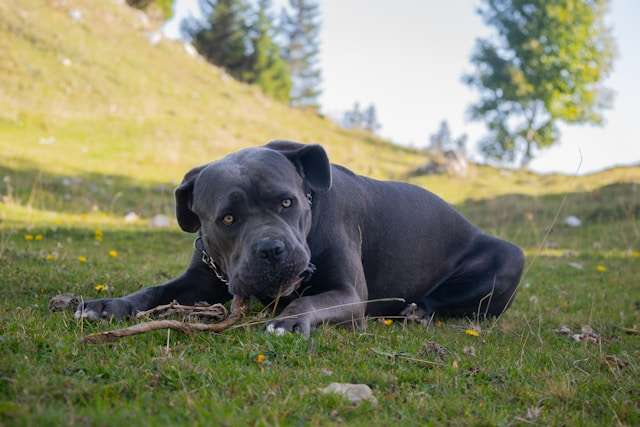Best Dog Food for Bernese Mountain Dogs: A Comprehensive Guide

Bernese Mountain Dogs are gentle giants with hearty appetites and specific nutritional needs. Because of their size, strength, and active nature, choosing the right food is essential to keep them healthy. Providing a diet that’s balanced and packed with nutrients helps maintain their energy levels and supports their joints. If you’re unsure where to start, our Your Guide To Lovable Bernese Mountain Dogs can offer additional insights into their care.
Table of Contents
Understanding the Nutritional Needs of Bernese Mountain Dogs
Bernese Mountain Dogs are large, active, and lovable canines that require nutrient-rich diets to stay healthy. Their nutrition needs are as unique as their personality. To ensure their well-being, it’s essential to understand the vital components of their diet, such as proteins, healthy fats, vitamins, and minerals.
Protein Requirements: The Building Block of Their Strength
Proteins are essential for maintaining muscle health in Bernese Mountain Dogs. High-quality protein sources, including chicken, beef, and fish, help support their large and powerful physique. Think of proteins as the foundation of their energy and vitality. Without it, their muscles can weaken, reducing mobility and fatigue.
When shopping for dog food, always look for recipes with real animal protein as the primary ingredient. Steer clear of foods overloaded with fillers like corn or soy; these do little for your dog’s nutritional needs. Check out this comprehensive feeding guide for more guidance on feeding this hearty breed.
Fat Content: Fuel for Energy and a Glossy Coat
Healthy fats provide Bernese Mountain Dogs with a steady energy supply while keeping their skin and coat in prime condition. Omega-3 and Omega-6 fatty acids are particularly beneficial as they can reduce inflammation and promote a shiny coat. Whether they’re bounding through the yard or taking a cozy nap, fats help regulate their energy levels effectively.
When evaluating dog food options, look for fish oil, flaxseed, or chicken fat. These fats not only boost energy but also provide long-term skin health benefits. Want to learn more about creating the best feeding plan? Explore this Bernese Mountain Dog Feeding Guide.
Essential Vitamins and Minerals: The Unsung Heroes of Health
Vitamins and minerals play an underrated but critical role in your Berner’s health. Calcium and phosphorus are essential for their strong bones and joints, especially given their weight. Vitamin E and selenium also support immune health, while Vitamin A promotes better vision and skin.
Ensure your dog’s diet includes whole food ingredients such as sweet potatoes, carrots, and green vegetables. These ingredients are not only nutrient-dense but are easier for your dog to digest compared to synthetic additives. You might find helpful insights in our Best Dog Food for Bernese Mountain Dogs if you’re still navigating the best foods for Bernese Mountain Dogs.

Photo by Impact Dog Crates
By addressing these dietary needs—proteins, fats, vitamins, and minerals—you’ll ensure your Bernese Mountain Dog thrives daily. Their health and happiness start with their bowl.
Best Dog Food Brands for Bernese Mountain Dogs
Feeding a Bernese Mountain Dog requires more than just filling their bowl. These gentle giants require high-quality dog food that addresses their large size, active lifestyle, and potential health risks like hip dysplasia. This section will focus on three reputable dog food brands that provide excellent nutrition for Bernese Mountain Dogs.
Acana: Nutrition Perfectly Tailored for Large Breeds
Acana is a trusted brand among dog owners for its high-protein and biologically appropriate recipes. Ideal for large breeds like Bernese Mountain Dogs, Acana emphasizes using wholesome, natural ingredients free from artificial additives. Their dog food features quality animal proteins from sources like chicken, fish, or lamb, ensuring robust muscle support.
One of Acana’s standout features is its focus on limited-ingredient diets. This makes it an excellent choice for sensitive dogs prone to food allergies. Their formula includes Omega fatty acids for joint health and shiny coats—a must for a breed as active and majestic as the Berner.
Acana’s grain-inclusive options also provide the right carbohydrates for sustained energy. Are you curious about which Acana formula might suit your dog? Check out this guide to selecting the best large-breed systems.
Blue Buffalo: A Popular and Reliable Choice
Blue Buffalo has earned its reputation as a go-to choice for dog owners, and for good reason. Their Life Protection Formula is designed specifically for large breeds, addressing the unique needs of Bernese Mountain Dogs with balanced proteins, fats, and carbohydrates.
One of Blue Buffalo’s strengths is its inclusion of LifeSource Bits, a blend of antioxidants, vitamins, and minerals that support immune health. This is especially valuable for Bernese Mountain Dogs, which, like many larger breeds, are prone to joint and mobility issues as they age. Their formulas also avoid any poultry by-products, which gives peace of mind to pet parents concerned about ingredient quality.
Wondering about joint support? Blue Buffalo integrates glucosamine and chondroitin, essential for joint strength and flexibility. For more insights on this brand’s benefits, explore the best food options for Bernese Mountain Dogs.

Photo by Paparazzi Ratzfatzzi.
Hill’s Science Diet: Designed with Precision for Large Breeds
Hill’s Science Diet is another excellent option for Bernese Mountain Dogs, offering scientifically backed formulas tailored to their size and activity level. This brand stands out for its commitment to using research-based nutrition. Large-breed-specific options include the proper calcium-to-phosphorus ratios, aiding bone density and strength.
Hill’s Science Diet also incorporates key ingredients like Omega-3 fatty acids, supporting joint health and mobility—a critical consideration for a breed susceptible to joint stress. Additionally, their recipes feature natural fibers to promote digestive health, keeping your dog energetic and happy.
If you’re seeking a formula suited for puppies and adults, Hill’s provides growth-specific and maintenance-focused options. Their formulas are versatile, providing targeted nutrition for every stage of your pet’s life. Learn more through in-depth resources, such as this guide to proper large-dog diets.
Providing the right food for your Bernese Mountain Dog ensures they live a healthy, active, and happy life.
Homemade Dog Food Options
Homemade dog food is a fantastic way to ensure your Bernese Mountain Dog gets fresh, nutrient-packed meals tailored to their needs. Preparing meals at home gives you full control over what goes in their bowl, which is essential for dogs with dietary sensitivities or unique nutritional requirements.
Nutritional Balance: Provide guidelines for ensuring a balanced diet when preparing homemade dog food
Before diving into the world of homemade meals, knowing what makes a balanced diet for Bernese Mountain Dogs is crucial. To thrive, these gentle giants need a mix of proteins, fats, carbohydrates, vitamins, and minerals. Missing or misbalancing one component can lead to nutritional deficiencies.
Here’s what your dog’s homemade meal should include:
- Proteins: Essential for muscle health. Use high-quality choices like chicken, turkey, beef, or fish. Around 40-50% of the meal should come from proteins.
- Fats: Keep their coat shiny and energy stable. Good sources include fish oil, olive oil, and chicken fat.
- Carbohydrates: These are energy boosters. Incorporate grains like brown rice or quinoa in moderation.
- Vitamins and Minerals: Introduce veggies such as carrots, spinach, and sweet potatoes. Sometimes, a vet-recommended multivitamin may be necessary.
Want to ensure your homemade meals meet all your dog’s nutritional needs? Consult a vet or canine nutritionist for personalized advice. Consider this homemade meal overview that outlines essential nutrient ratios for further inspiration.
Ingredient Suggestions: List safe and nutritious ingredients that can be included
Not all foods are dog-friendly, so carefully choose ingredients. With Bernese Mountain Dogs, aim for nutrient-rich ingredients that support joint health, coat condition, and energy levels.
Here are some safe and nutritious options:
Proteins
- Lean ground turkey
- Chicken breast
- Beef (low-fat)
- Fish (like salmon or cod)
Carbohydrates
- Brown rice
- Sweet potatoes
- Oats
- Quinoa
Vegetables (Steamed or Cooked for Easy Digestion)
- Carrots
- Broccoli
- Spinach
- Zucchini
Fats
- Fish oil (for Omega-3s)
- Olive oil
- Coconut oil (in small amounts)
Extras for Variety
- Hard-boiled eggs
- Pumpkin puree (for digestion)
- Blueberries (rich in antioxidants)
Avoid harmful foods like onions, garlic, grapes, and chocolate. For recipe inspiration, try this DIY Homemade Dog Food recipe to get started.

Photo by Katerina Holmes
For Bernese Mountain Dogs with sensitive stomachs, homemade meals can help alleviate digestive issues. Read more about dog nutrition for sensitive stomachs if your Bernese struggles with commercial dry food options.
Providing freshly prepared meals improves their health and strengthens the bond between you and your furry friend. Why not make their next meal an unforgettable one?
Tips for Transitioning Dog Food
Switching your Bernese Mountain Dog’s food isn’t just about changing what’s in their bowl—it’s about ensuring their health and satisfaction. A careful and gradual transition helps prevent stomach upset, ensuring your dog’s digestive health stays on track. Let’s explore how to tackle this with ease.
Gradual Transition Steps
When introducing a new food, sudden shifts can be harsh on your dog’s sensitive stomach. A gradual approach ensures they adjust comfortably to the new diet. Here’s a simple step-by-step process to follow:
- Start Small: Mix 25% of the new food with 75% of the current food.
- Increase Gradually: Over the next 7-10 days, slowly increase the ratio of new food while decreasing the old. By the end of the period, 100% of their diet should consist of the latest food.
- Stir Well: Mix thoroughly to avoid your pup picking out only the familiar pieces.
- Observe Their Reaction: Monitor how your Bernese handles the change. Are they eating readily? Are there any changes in stool consistency? Adjust the timeline as needed based on their tolerance.
Patience is key here. Remember, every dog progresses at their own pace. Learn more about this from AKC’s guide on transitioning foods.

Photo by MART PRODUCTION
Monitoring Your Dog’s Health
As you change your diet, keeping a close eye on your Bernese Mountain Dog’s health and behavior is essential. Sudden changes can lead to issues, but spotting them early makes all the difference. Here’s what to watch for:
- Appetite: Are they eating less or avoiding meals? This could signal discomfort.
- Stool Quality: Soft or runny stools might mean you’re transitioning too quickly.
- Energy Levels: A lethargic dog may need nutritional adjustments.
- Skin & Coat: Changes in their coat’s shine or itchiness could indicate food sensitivities.
If problems persist after adjusting their diet, consult your vet to rule out allergies or intolerances. For additional tips, check out Purina’s guide to switching dog food.
Transitioning food is more than just feeding. It’s about understanding your dog’s needs and taking proactive steps to support their health. Reading signs and responding quickly will ensure a smooth and stress-free process.
Common Dietary Mistakes to Avoid
When feeding your Bernese Mountain Dog, the focus usually lies on providing quality ingredients. However, understanding how you feed them is equally crucial. Avoiding common dietary mistakes can save your dog from unnecessary health risks and ensure they thrive for years. Let’s explore the most frequent pitfalls dog owners face.
Overfeeding and Obesity

Photo by Rafael Rodrigues
Overfeeding is one of the leading causes of obesity in dogs, particularly in large breeds like Bernese Mountain Dogs. Because they’re naturally big and lovable, it’s easy to misjudge their portion sizes, thinking more food equals better care. However, like humans, dogs can develop obesity-related complications, including joint stress, heart strain, and diabetes.
Bernese Mountain Dogs already carry much weight, so even a few extra pounds can intensify conditions like hip dysplasia. Think of their joints as a car’s suspension system—overloading reduces performance and durability.
To avoid overfeeding:
- Stick to portion guidelines provided by your dog’s food or vet.
- Resist feeding table scraps or “just one more treat.” It adds up quicker than you realize.
- Use a calorie calculator for accuracy. Sites like this nutrition guide can help you refine portion sizes based on weight and activity.
Remember, loving your dog doesn’t mean overfilling their bowl—it’s about balancing their appetite and needs.
Ignoring Ingredient Labels
Labels on dog food aren’t just for decoration—they’re an essential roadmap to your dog’s health. Yet, many owners overlook or misunderstand them, risking their dog’s nutrition.
For example, some commercial dog foods hide fillers like corn, soy, and by-products under unrecognizable terms. These ingredients offer minimal nutritional value and can lead to allergies or digestion issues. With their sensitive stomachs, Bernese Mountain Dogs thrive better on whole foods with minimal processing.
When shopping for feed:
- Look for foods with real proteins (like “chicken” or “beef”) listed as the first ingredient. Avoid terms like “meat meal,” which are vague at best.
- Check for omega-3 fatty acids, which are essential for joint and coat health.
- Avoid artificial additives. Preservatives and colors don’t benefit their health.
For more guidance on ingredient quality, refer to this feeding mistakes article.
By paying close attention to what’s listed on the label, you’re taking a proactive step in ensuring your Bernese Mountain Dog’s meals are nutritious and beneficial. Investing a little extra time in this step avoids potential long-term health issues.
In feeding your Bernese Mountain Dog, sidestepping these mistakes is critical for their well-being and ensuring their health remains at its peak.
Making the Right Choice for Your Bernese Mountain Dog’s Nutrition
Selecting the right dog food for your Bernese Mountain Dog can feel daunting, but it’s one of the most important decisions you’ll make as a pet owner. Their health, energy levels, and overall happiness can be heavily influenced by what’s in their bowl. By understanding their unique needs and avoiding common pitfalls, you ensure their well-being and create a stronger bond with your furry companion.
Why Proper Nutrition Matters
A healthy diet is the foundation for your Bernese Mountain Dog’s quality of life. Without proper nutrition, your dog’s immune system weakens, their energy levels drop, and age-related health issues like joint problems can appear earlier than expected.
Being large and active, Bernese Mountain Dogs require diets rich in high-quality proteins, healthy fats, and essential vitamins. Ignoring their specific needs can lead to weight issues, joint stress, and other avoidable health complications. Balanced nutrition supports strong bones, a shiny coat, and a robust immune system—key for this majestic breed.
For a deeper dive into nutritional basics, this guide on selecting the best dog food provides additional helpful insight.
Ingredients to Prioritize
When shopping for dog food, you’ll want to look for:
- Real animal proteins: The first ingredient should always be meat, like chicken or fish.
- Omega-3 and Omega-6 fatty acids: Essential for joint health and a glossy coat.
- Wholesome vegetables: Ingredients like carrots or spinach provide vitamins and minerals.
- No unnecessary fillers: Avoid corn, soy, or artificial additives, which provide little benefit.
Transitioning to new food? Take it slow and monitor your pup’s reaction. If you’re switching to a new brand, follow these step-by-step tips from our food transition guide. Slow adjustments can help support their sensitive digestion.

Photo by Anastasia Shuraeva
Resources for Your Decision
No one knows your dog better than you, but keeping informed is key. Leverage trusted resources like The 9 Best Dog Foods for Bernese Mountain Dogs to compare brands, ingredients, and reviews.
For those curious about broader breed-specific care, our Dog Breeds Guide can provide handy tips on raising a happy Bernese.
Take the time to research and evaluate your options. Your efforts today ensure your Bernese Mountain Dog’s healthier and happier future.
FAQs: Choosing the Best Dog Food for Bernese Mountain Dogs
What nutrients are essential for Bernese Mountain Dogs?
Bernese Mountain Dogs thrive on high-quality protein, healthy fats, fiber, and complex carbohydrates. Look for omega-3 and glucosamine to support joint health.
How can I tell if a food is suitable for large-breed dogs?
Check the label. It should mention nutrients targeting large-breed needs, such as controlled calcium and glucosamine.
Is grain-free food good for Bernese Mountain Dogs?
Grain-free diets aren’t always necessary unless your dog has allergies. Always consult your vet before switching to grain-free.
How much food should a Bernese Mountain Dog eat daily?
Most Bernese Mountain Dogs need 4-6 cups of high-quality dog food daily, split into two meals. Adjust for activity level.
Do puppies need different food than adults?
Yes, Bernese Mountain Dog puppies need food formulated for large-breed growth. These options often have extra calcium control.
Are specific protein sources better for this breed?
Lean meats like chicken, turkey, lamb, and fish are ideal. Choose recipes with high meat content for digestibility.
Should I consider homemade diets?
Homemade diets can be effective but require proper balance. Consult your vet or a pet nutritionist to avoid deficiencies.
Can supplements benefit Bernese Mountain Dogs?
Supplements like omega-3s, glucosamine, and probiotics can support joints, digestion, and coat health. Check with your vet first.
How can I tell if my dog food causes allergies?
Watch for scratching, licking paws, or upset stomachs. Switch to limited-ingredient food if you suspect allergens.
What brands are recommended for Bernese Mountain Dogs?
Reputable brands such as Taste of the Wild often cater to large breeds. Always pick options with proven nutrition profiles.
For more about Bernese Mountain Dogs, explore this helpful guide.






